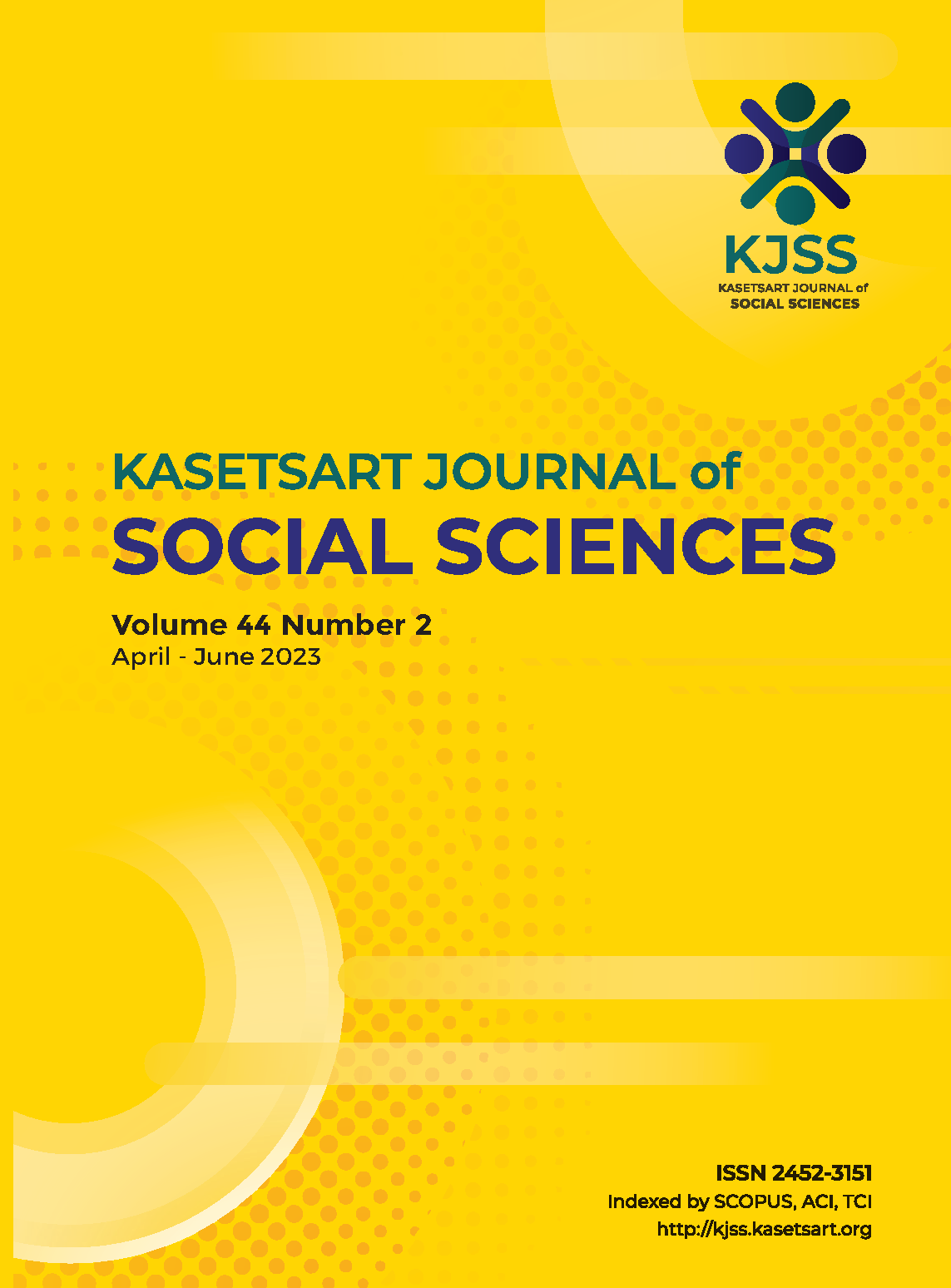A model of young leader development on environmental education in Thailand
Keywords:
environmental education, innovation efficiency evaluation, young leader developmentAbstract
Youth have a strong role to play in environmental protection, and we should focus on developing their leadership skills through environmental education (EE). This research aimed to: (1) examine the competencies of environmentally educated young leaders; and (2) design an EE model for young leader development in Thailand. Questionnaires, focus group discussions, and in-depth interviews were conducted to collect data on what participants perceived to be key competencies for environmentally educated young leaders. Next, these data were used to create the EE model for young leader development. Finally, the model was applied to a training program for high school students, and its effectiveness was evaluated based on pre- and post-tests administered on the students. The evaluation results showed that the mean evaluation score rises from a moderate level before evaluation (x = 6.31, SD = 1.70) to a high level after evaluation (x = 8.85, SD = 1.01). The highest mean score is for public benefits (x = 9.06, SD = 1.02), followed by learning (x = 8.87, SD = 0.98), satisfaction on innovation (x = 8.78, SD = 1.02), and pro-behaviors (x = 8.70, SD = 1.02). Therefore, our proposed model can be used as a part of EE in schools for youth leader development.
Downloads
Published
How to Cite
Issue
Section
License

This work is licensed under a Creative Commons Attribution-NonCommercial-NoDerivatives 4.0 International License.
This is an open access article under the CC BY-NC-ND license http://creativecommons.org/licenses/by-nc-nd/4.0/










